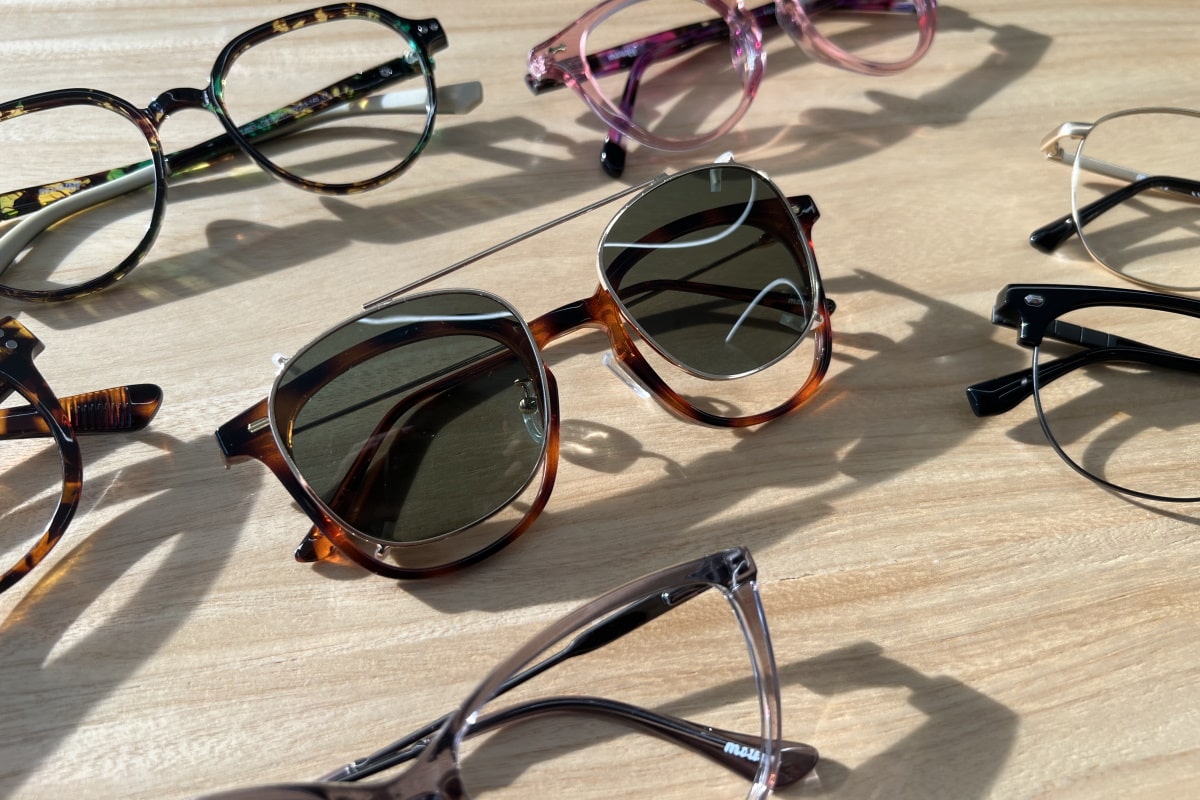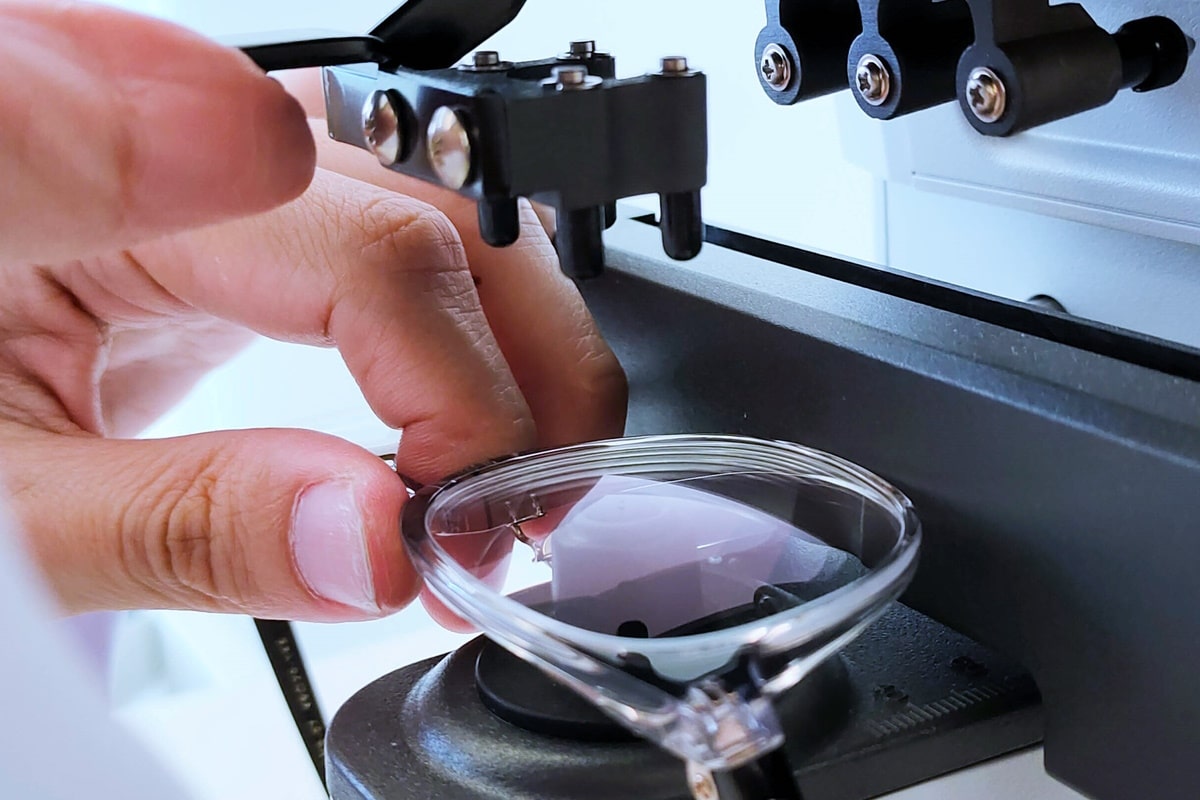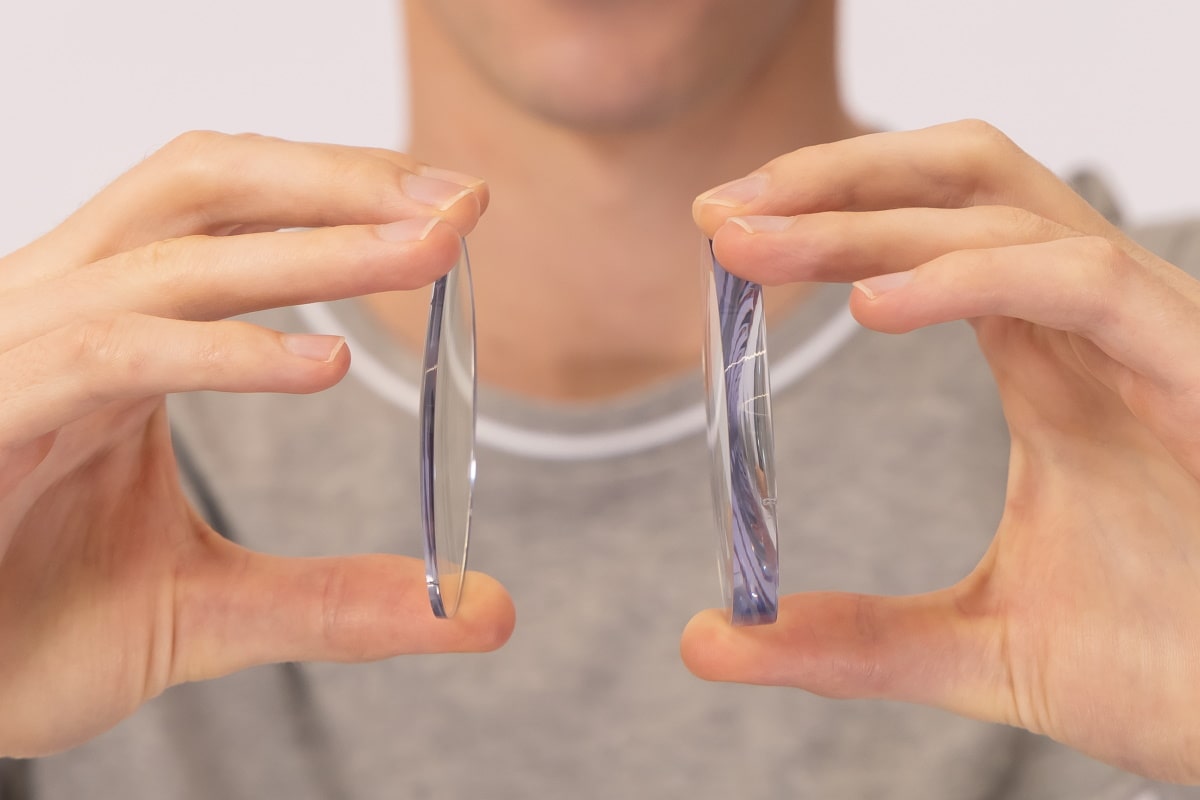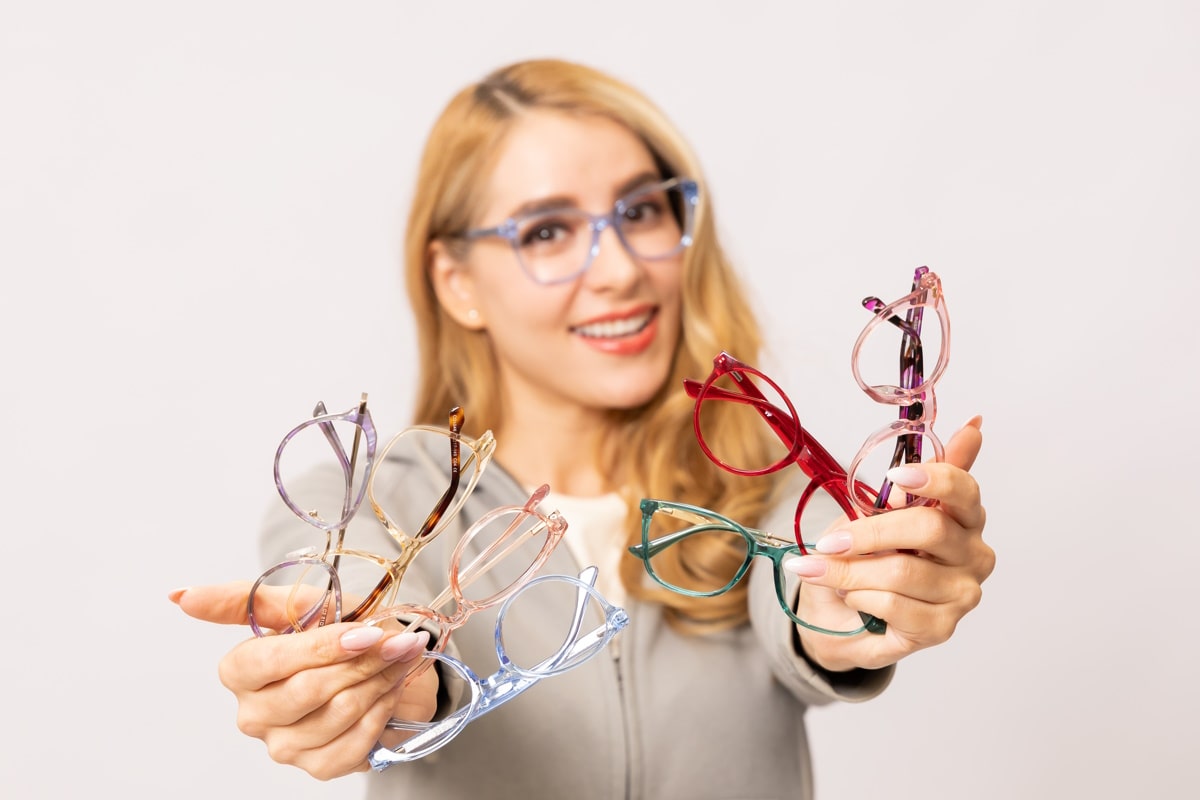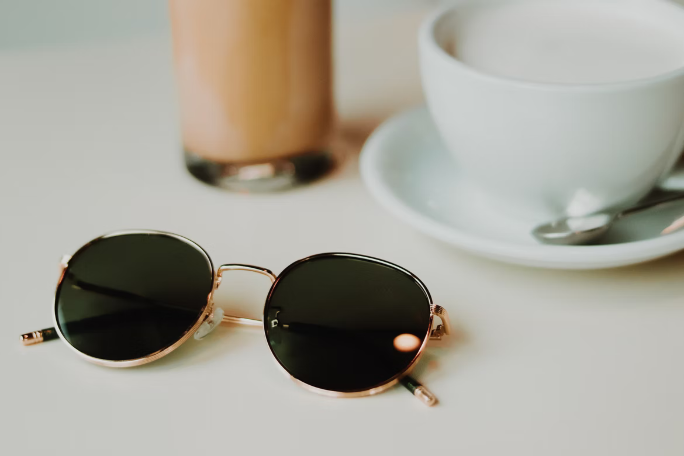UV Protection in Glasses: Everything You Need to Know
As a society we have started putting much more effort into protecting our skin from the sun – but what about our eyes? Our eyes require just as much attention and UV protection as the rest of our body, and here’s everything you need to know!
Why is UV protection critical to eye health?
As with your skin, it’s important that you protect your eyes from harmful UV rays. While outside, you are exposed to two types of UV radiation:
- UVAis a longer wavelength associated with ageing, which can penetrate the eye and damage your retina (back of the eye).
- UVBis a shorter wavelength associated with burning and skin damage. These rays can pass through and damage your cornea (front of your eye) and lens (focuses light onto the retina).
Common effects of UV exposure on the eyes include:
- Cataracts
- Macular degeneration
- Eye growths such as pterygium or pinguecula
- Corneal damage
- Cancers such as melanoma, basal cell carcinoma (BCC), or squamous cell carcinoma (SCC)
In addition to affecting the eye itself, too much sun exposure can cause wrinkling, cancers, and uneven pigmentation on the eyelids and surrounding skin. Wearing eyeglasses with UV protection will reduce risks of sun damage to both your eyes and the skin around them.
What kinds of UV protection can glasses offer?
While regular eyeglasses can absorb some UV light, UV absorption can be enhanced by treating or coating your spectacle lenses. You can get glasses with UV protection by either buying sunglasses or clear spectacles with certain coatings or treatments.
Sunglasses come in many tint colors with different levels of darkness and provide protection against glare too. You can also purchase specialized sunglasses, such as polarized sunglasses, which further reduce glare and are great for driving and water activities. It’s important to understand that polarizing is different to UV protection. While most polarized sunglasses offer UV protection, it’s important to read the label and ensure that they will protect your eyes from UV light.
Transition lenses, or reaction lenses, are clear spectacles that become dark outside when they are exposed to UV light. This means that your lenses will be clear inside and dark like sunglasses outside. Transition lenses are best if you are looking for one set of eyeglasses that can be used indoors whilst also providing protection when you are outdoors.
Blue light eyeglasses also offer some UV protection by blocking out shorter wavelength light (400-500nm). As a coating on clear spectacle lenses, blue light filtering will not reduce glare and light sensitivity quite as effectively as sunglasses. However, blue-block coatings can be added to sunglasses to increase the wavelength range of protection against harmful light.
Polycarbonate lenses provide 100% UV protection, while also making your prescription lenses 25% thinner and more impact resistant. The glare and brightness of light outdoors can be reduced in polycarbonate lenses by tinting or polarizing them as you would with regular sunglasses. You can also get transition lenses made from a polycarbonate material.
UV coatings can be added onto clear spectacle lenses to provide UV protection without darkening the lens. However, these eyeglasses will not reduce glare like sunglasses.
How much UV protection should my sunglasses offer?
Sunglasses can absorb up to 100% of all UV light, so looking for sunglasses that state this percentage is a good start. Sometimes your sunglasses may have the label “UV400” which means that they absorb up to 400nm (nanometers) of UV light; this is the same as blocking 100% of UV rays.
Some sunglasses may have a lower percentage of UV absorption, which is putting your eyes at risk of damage. It’s important that you don’t settle for less than 100% UV protection.
Do transition lenses have UV protection?
Transition lenses provide continuous UV protection, which means that you can use one set of eyeglasses both indoors and outdoors without worrying about sun protection. Molecules in these lenses react with UV light, causing them to darken when you are outside.
While transition lenses are great for UV protection, they may not reduce glare and the brightness of lights as much as tinted or polarized sunglasses. This is particularly the case while driving as most windshields have UV protection, which prevents the lenses from reacting with UV light and darkening.
Do polycarbonate lenses need a UV coating?
Polycarbonate lenses block 100% of UV light without any added coatings. Polycarbonate lenses are a thinner, more durable alternative to regular eyeglass lenses and provide sun protection. Although clear polycarbonate lenses will not reduce light and glare sensitivity as well as sunglasses do outdoors, you can get polycarbonate sunglasses or transition lenses.
Do dark sunglasses have better UV protection?
The color and darkness of your sunglasses will not affect how well they protect you from UV light. You can base the shade and color selection of your sunglasses on your personal preferences and lifestyle.
Darker tints are more suitable if you need extra protection against glare or if you spend a lot of time in particularly sunny environments. If you struggle to see clearly with darker tints or if you have no issues with glare sensitivity, then you might opt for a lighter shade of sunglasses.
Sunglasses most often come in a gray or brown colored tint, with many other color options existing for aesthetics. A gray tint is often described as “black” and is a neutral option that is best for reducing brightness and glare without affecting how you perceive colors. Brown tints increase contrast and clarity and are a great option if you want your colors to appear more vibrant. Other common tint colors include green, yellow, and amber.
Do sunglasses lose their UV protection?
Over time, prolonged UV exposure may deteriorate the coating of your UV protection. This will ultimately reduce the full protection provided by your sunglasses. Studies have found that if you wear your sunglasses outside for up to 2 hours a day, they will offer full UV protection for 2 years. After this time, UV protection will gradually reduce, and new sunglasses should be considered.
Is UV protection the same as blue light protection?
While blue light glasses are designed to filter out blue light coming from digital screens, they do have properties of UV protection and glare reduction. This is because blue light rays have shorter wavelengths of 400-500nm, which overlaps with the wavelengths of UV light (100-400nm). Thus, by having blue-block glasses you will receive some UV protection.
However, for maximum protection against UV it is recommended to wear eyeglasses with a specific UV coating (i.e. clear spectacles with UV coating, sunglasses, or transition lenses). You can also add blue light-blocking coatings onto sunglasses for a wider range of protection against harmful light.
UV protection is very important to your eye health and wearing sunglasses can greatly help with reducing glare and brightness while you are outdoors. If you have any concerns about your choice of UV protection or if you are struggling to decide between lens types, consult your local optometrist to find out what the best option is for you.
References
- “UV Radiation & Your Skin”, Skin Cancer Foundation
- “The Sun, UV Light and Your Eyes”, American Academy of Ophthalmology
- “What’s Blue Light, and How Does It Affect Our Eyes?”, Healthline
- “Is the UV Coating on Prescription Lenses Enough Protection?”, American Academy of Ophthalmology
- “Recommended Types of Sunglasses”, American Academy of Ophthalmology
- “Sunglasses with Transition Lenses: Pros and Cons”, American Academy of Ophthalmology
- “Tips for Choosing the Best Sun”, American Academy of Ophthalmology
- “Choosing the Right Tint for Your Sunglasses”, Verywell Health
- “Equivalence Between Solar Irradiance and Solar Simulators in Aging Tests of Sunglasses”, BioMedical Engineering OnLine

Written by:
Dr. Jordan Marr

